'Why is no-one talking about NHS systemic failure?'
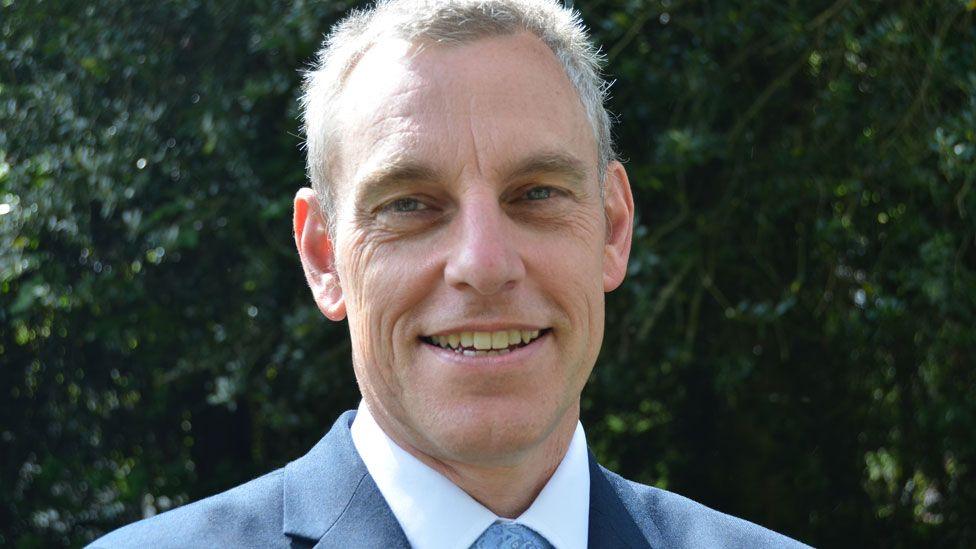
Chris Rolph wants all the political parties to be "brave enough" to tackle an NHS system in which "senior leaders do not seem to be held accountable"
- Published
"Why is no-one talking about the systemic failure of the NHS?" asks Chris Rolph.
The 58-year-old discovered four broken basins during his quest to wash his hands after he visited his mother at Wycombe Hospital in High Wycombe, Buckinghamshire.
Mr Rolph got in touch with the BBC via Your Voice, Your Vote to tell us that systemic failure of the NHS is "an issue the political parties should be fighting to solve" in this election.
"It's not all about money, but a lack of leadership," he said, while adding politicians "only seem interested in saving money" and they "aren't brave enough to tackle it".
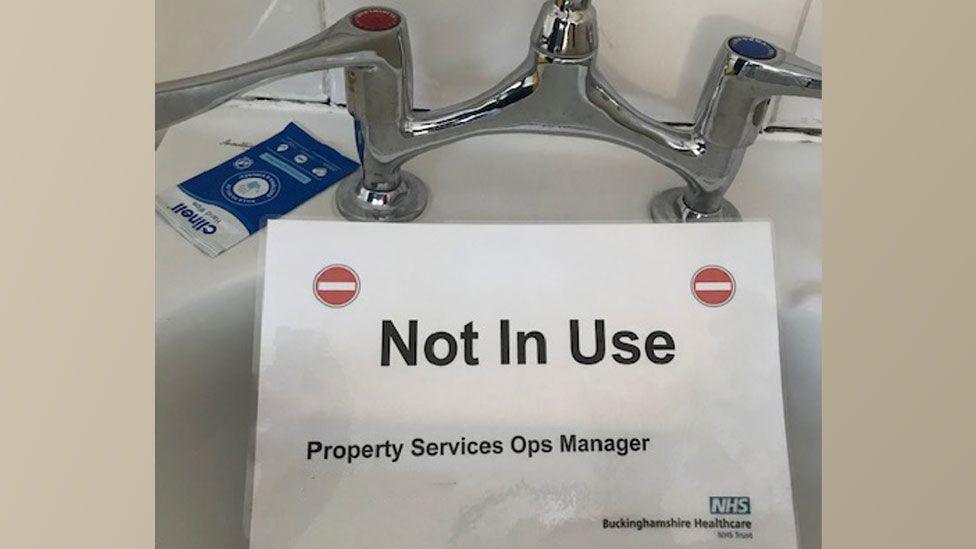
Mr Rolph needs to wash his hands to prevent the spread of C-diff around the hospital but the basin in his mother's room is out of use
Mr Rolph, who lives near Louth, Lincolnshire, has regularly been making the long 175-mile (281km) journey to visit his 86-year-old mother.
Among her various health issues, she is in isolation with C-diff (Clostridium difficile), external, a bacteria which can easily spread to others.
"Anti-bac can't be used, you need to wash hands after contact," he said.
He said the basin in his mother's room was broken, the temporary sink on the corridor was out of water, the public toilets on the ground floor had been out of order for a fortnight and when he tried the first floor facilities in the X-ray department, there was no water.
Mr Rolph said: "Meanwhile, I could have spread infection across half the hospital."
A spokesperson for the hospital said "routine testing" identified "an issue with the water in some parts of Wycombe Hospital.
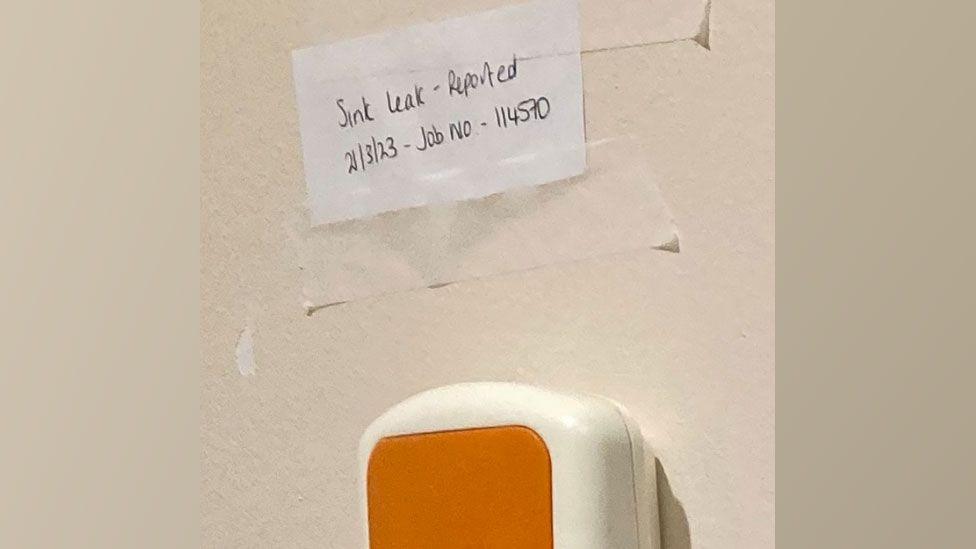
One of the basins in the X-Ray department loos had been reported in March last year and currently all are out of use
As a result it was advised to fit filters to taps and showers "as a precautionary measure, to provide a protective barrier and ensure the water is safe to use", the spokesperson added.
But it was not possible to add filters to all taps and showers due to their age, so it had provided alternatives such as alcohol hand rubs and mobile sinks.
The spokesperson said: "We are in the process of carrying out the necessary repairs and are undertaking water samples to show us that it is safe to remove the temporary filters and resume using the older taps and showers again."
The hospital apologised for the empty mobile sink.
Mr Rolph praised clinical staff who were "working hard to hold it together", but in another example of "systemic failure", he said they were unable to access his mother's online notes for her full case history
His junior doctor daughter, based in another NHS hospital, told him this was not unusual. She has to access "seven different IT systems just to look after the same patient".
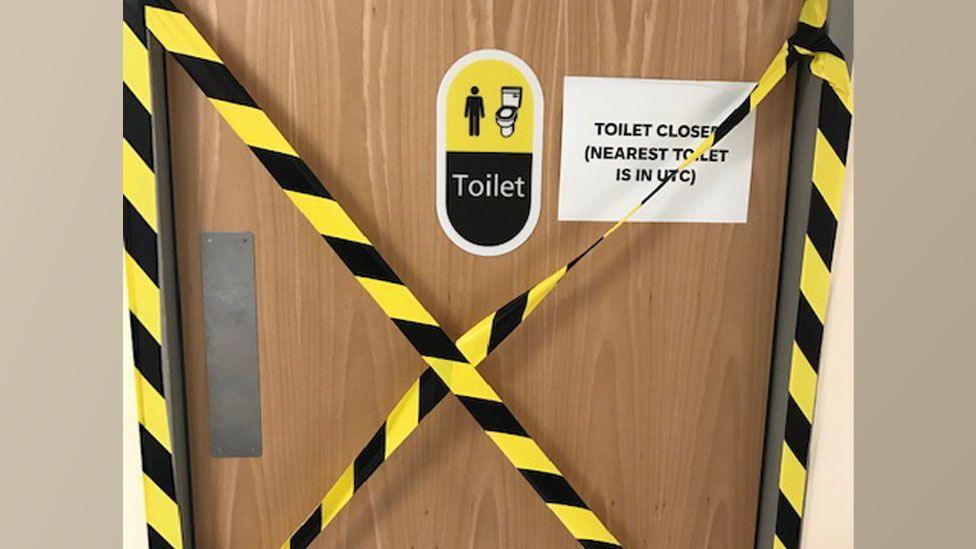
The public toilets in reception were closed for a fortnight
Mr Rolph works in education and contrasted the NHS with with the school academy system, which "has accountability and if there is a problem, it can make changes quickly".
"I thought that was the plan with the introduction of NHS trusts, it would enable people to make rapid changes," he said.
"Instead people can ignore failings without taking responsibility and senior leaders do not seem to be held accountable.
"Why are the main parties not talking about this?
NHS Trusts were introduced by the Conservatives in 1991 and extended by Labour from 2004 to offer greater autonomy and local accountability.
NHS Foundation Trusts were introduced by the Conservative and Liberal Democrat coalition government in 2004, with the aim of giving communities and staff a bigger say in managing NHS services in their area.
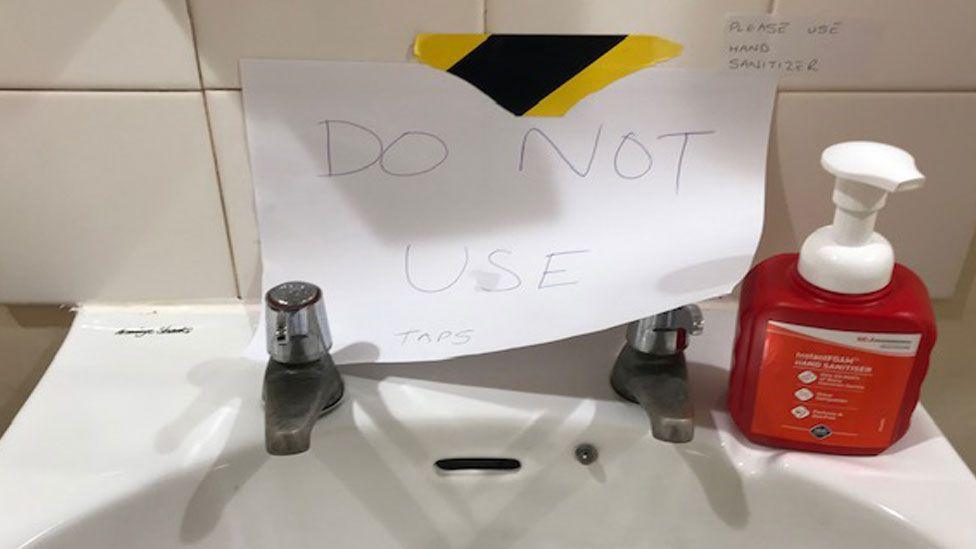
Mr Rolph said he raised the issue "not to have a whine about my mother" but having had his eyes opened "to systemic issues that have their roots in policy"
How the parties, listed in alphabetical order, plan to tackle the issue:
The Conservatives promise to see through their 40 new hospitals programme by 2030. They say they will increase NHS spending above inflation every year, recruiting 92,000 more nurses and 28,000 by the end of the next parliament. They will move care closer to people’s homes through Pharmacy First, modernised GP surgeries and more community diagnostic centres.
Labour say NHS estates are in a state of disrepair after years of neglect. They are therefore committed to delivering a new hospitals programme. They say much of the treatment in the NHS is dependent on the effective administration of services, and that managers need support and accountability so they will implement professional standards and regulate NHS managers.
The Liberal Democrats plan to spend £1.1 billion of investment in hospitals and other NHS infrastructure and equipment a year and will implement a 10-year plan to invest in hospitals and the primary care estate to repair crumbling roofs, dangerous concrete and life-expired buildings. They plan to invest £8.3bn a year extra for the NHS.
The Green Party will spend an additional annual expenditure of £8bn in the first full year of the next parliament, rising to £28bn in total by 2030. They believe this will help them deliver a year-on-year reduction in waiting lists. They are also committed to additional capital spending of at least £20bn over the next five years for hospital building and repair.
Reform UK plans to spend an extra £17bn a year for NHS by scrapping net zero targets. They believe this will help them end waiting lists within two years. They will deploy logistics experts to improve productivity. Employers will be encouraged to offer private insurance. Patients will receive private treatment vouchers if they cannot get treatments within certain time frames.


What really matters to you in this general election? What is the one issue that will influence your vote? Click the button below to submit your idea, and it could be featured on the BBC.